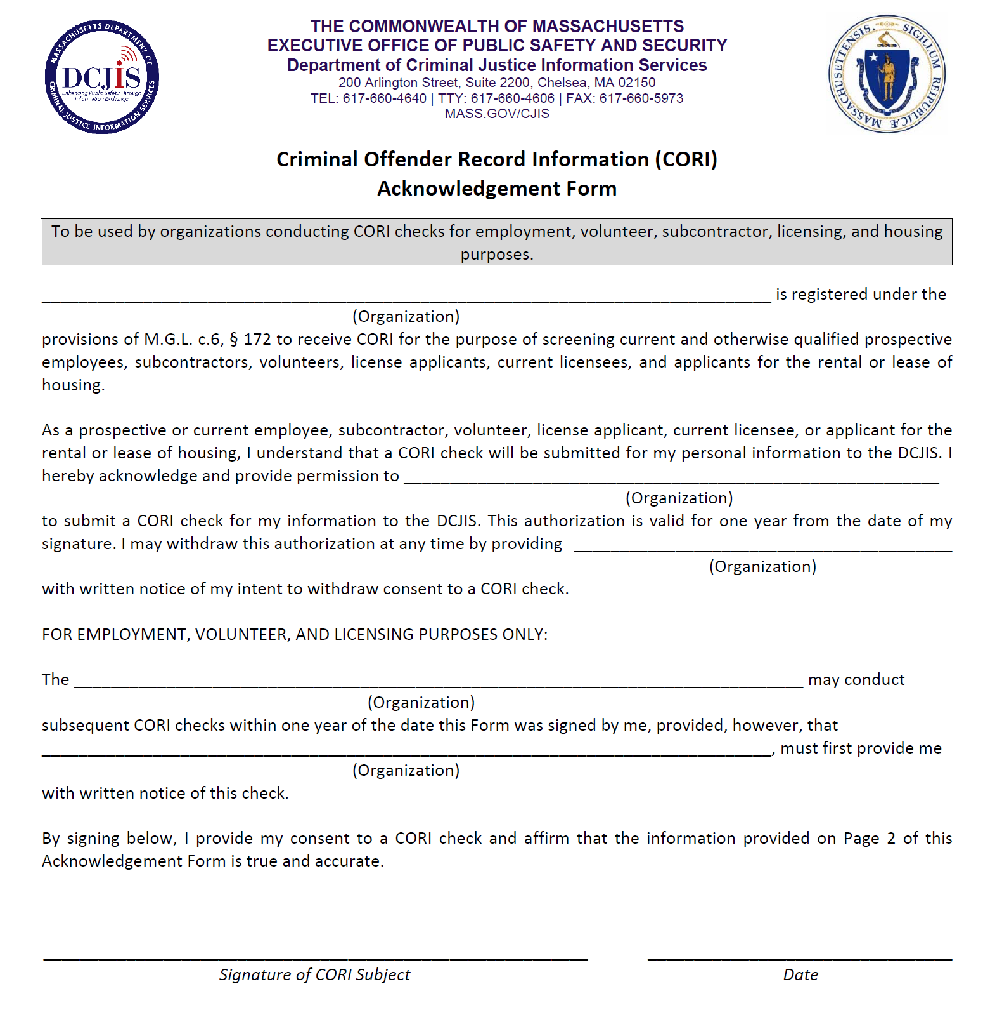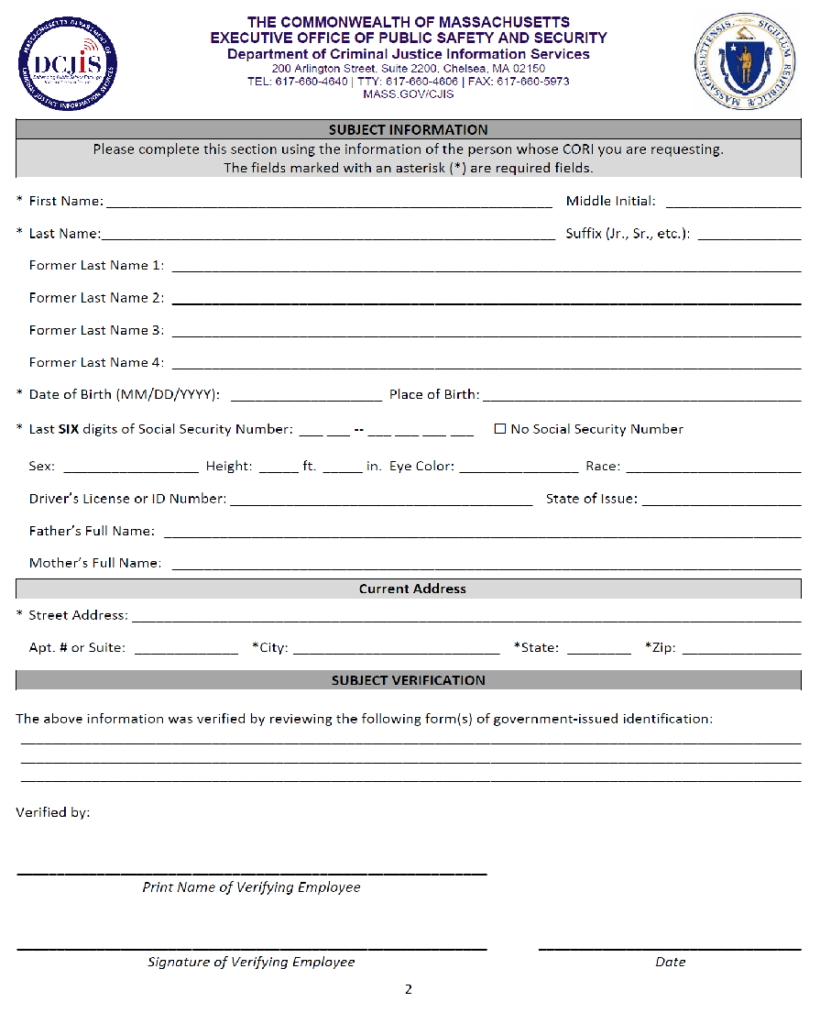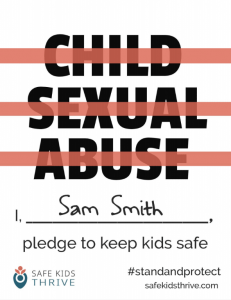Read the Report
Home / Read the Report
Appendix 8: Screening Hiring and Licensing
QUESTIONS FOr SCREENING AND SELECTING EMPLOYEES AND VOLUNTEERs 1
The following questions may be used in a written application or personal interview. A single answer should not determine whether an applicant is selected or rejected. Along with other forms of information, answers to these questions can help build a more complete picture of an applicant. Additional questions may be found in various publications and policies in the “Resource List and Sample Policies” section. (See below and Appendices 6 and 7.)
- What type of supervisory situation do you prefer?
- If applicants are very independent, they may not fit in an organization whose policies and procedures require close supervision. Ask how they see the organization providing feedback for their work. If there is no healthy response, this could be problematic.
- What age/gender of youth do you want to work with? How would you feel about working with a different age/gender?
- If an applicant seems fixated on one age/sex, be wary. However, it may be that the applicant has experience, or is gifted with working with certain age groups. Asking follow-up questions about why an applicant has a strong preference can help determine if there is cause for concern.
- Is there anyone who might suggest, or has there ever been a situation in the past, where there was concern expressed that you should not work with children or youth? Why or why not? If yes, please explain the circumstances and how it was handled.
- Why do you want the job?
- What would you do in the following situation?
- Set up scenarios that involve potential concerns, boundary issues, or youth protection policies and interactions to gauge the applicant’s response. Be concerned if applicants disregard or disagree with the organization’s policies and procedures or handle a situation poorly. In these cases, delve deeper into the situation to gauge whether or not they understand the organization’s culture, and/or if they exhibit difficulty in understanding the importance of establishing good boundaries with those in their care.
- Tell us about a time you disagreed with the rules at work. What did you do? What was the outcome?
- What makes you a good candidate for working with youth? What would your friends or colleagues say about how you interact with youth?
- Be concerned about responses describing the importance of developing strong, personal, exclusive connections with youth, or about relationships with youth (rather than with adults) being the most important in their lives.
- What other hobbies or activities do you enjoy? How much time do you spend with children vs. adults outside of work?
- Determine if applicants have mature, adult relationships—not just relationships with children and youth.
Sample questions and statement of suitability for employment/volunteer applications
The application form may also include the following:
- Full name and any prior names used by the applicant, including any legal name changes;
- Current and previous address;
- All previous work and volunteer experiences;
- Professional credentials or licenses held (relevant to the position being sought);
- A request for disclosure of criminal history, reported and supported allegations of child abuse and/or disciplinary actions taken by a licensing or certifying authority including;
- Disclosure of prior job loss due to inappropriate contact or conduct with children or youth
- Disclosure of prior school suspension or expulsion (as a student) due to inappropriate contact or conduct with children or youth
- NOTE: Many organizations also make it clear that after an applicant is hired, it is expected that subsequent arrests or criminal convictions while a member of the organization will be immediately disclosed
- If no criminal history is disclosed, applicant signature on a statement (referred to as a Statement of Suitability) that certifies the applicant knows of no reason that would prevent them from working safely with children and youth;
- SAMPLE: I hereby affirm that my answers to questions on this application are true and correct, and that I have not knowingly withheld any fact or circumstances that would, if disclosed, affect my application unfavorably, or prevent me from working safely with children and youth.
- List of personal and professional references (see the section on reference checks for more information)
- Consent for contacting references and a signed Authorization Form allowing the organization to perform a criminal background check (See MA CORI and SORI Authorization Forms below) and;
- A clear statement that any information provided by the applicant that is later determined to be misleading or false may preclude the applicant from further consideration (or subject them to termination if the information is discovered after hire).
- SAMPLE: I understand that any false or misleading information submitted in this application is cause for denial of this application or termination of my employment or volunteer services regardless of when or how discovered and that my services are subject of (the organization’s) review and the completion of a criminal history check.
Sample questions for previous employers
The following questions may be useful for reference checks:
- How would you describe the personal characteristics of the applicant?
- How does the applicant interact with children and youth?
- Why would this person be a good candidate for working with children and youth? Is there any reason this person should not work with children and youth?
- Have you seen the applicant discipline youth (other than his or her own children)?
- Is the applicant able to receive constructive feedback, particularly relevant to safety issues when working with children or youth?
- Did the applicant demonstrate appropriate boundaries with children and youth? If not, please explain.
- Would you hire this person again? Would you want him or her in your organization in the future?
- Is there anything you would want to say about the applicant that I have not asked?
SORI Request Form

CORI acknowledgment form

CORI request form

Nationwide and state criminal-history checks
One of the most vital layers of a comprehensive screening program is a nationwide criminal-history check. There are essentially two types of criminal-history checks: fingerprint-based and name-based. Fingerprint-based checks offer one advantage as they can help properly identify someone who is using an alias and attempting to avoid detection. Name-based checks offer their own advantages; most notably—greater accessibility and timeliness of results.
The nationwide fingerprint check is a search of the FBI’s master fingerprint file, which can be accessed through state law enforcement agencies. The check involves searching the official state repositories of criminal-history information. These state repositories are maintained in a database called the Integrated Automated Fingerprint Identification System (IAFIS). IAFIS is a national fingerprint and criminal-history system that responds to requests 24 hours a day, 365 days a year. IAFIS searches include arrest records, convictions, juvenile records (if provided by the state), dismissed charges or not-guilty verdicts, warrants, Sex Offender Registry information, physical characteristics (i.e., height, weight, hair, tattoos, and eye color), and aliases. All arrest data included in an Identification Record is obtained from fingerprint submissions, disposition reports, and other information submitted by agencies with criminal justice responsibilities.
Some state search checks allow you to access these records through either a fingerprint or name-based check by submitting the applicant’s name, sex, and date of birth; however, the check may only include a search of the state where the information was submitted. State laws and regulations govern access to these records, and they vary significantly. Therefore, it is important to contact your state repository to determine if these records are accessible when creating background-screening policies. If a nationwide search is not an option, then it is important to check every state in which the applicant has resided. A list of the State Identification Bureaus is available on the FBI Criminal Justice Information Service’s website at: (https://www.fbi.gov/services/cjis/identity-history-summary-checks/state-identification-bureau-listing). The State Identification Bureau for Massachusetts is: Massachusetts State Police State Identification Section, 59 Horse Pond Rd., Sudbury, MA 01776 (508-358-3170).
Private Companies: Another way to obtain a criminal-history check is through a private company. These are name- or social security number- based searches of public court records, state correctional facilities, and state criminal history record repositories. These companies buy the information from the states and create their own proprietary databases. You supply the applicant’s name, date of birth, and/or social security number, and they will provide your results in a report. It is important that the search includes a social security number, if possible, which will provide a history of past and present addresses and names associated with the individual’s SSN, including aliases.
Private vendors return the results rather quickly; and can tailor the depth of a search (and, therefore, cost) based on the risk associated with a position. However, it is important to remember not all states sell their criminal-history information to commercial databases, even if the report says it is a nationwide check. When choosing a private company, it is recommended to inquire about the sources of their information and how often the data is updated. The commercial databases may also be missing important disposition information that is relevant to determine whether an individual was only arrested for versus convicted of a particular offense. It is also important to speak to legal counsel as there are certain legal requirements that organizations must meet in order to protect an individual’s privacy rights and ensure fair use of the information, including compliance with the Fair Credit Reporting Act and state consumer reporting laws. (For further information, visit the Federal Trade Commission, Bureau of Consumer Protection website at: (https://www.ftc.gov/tips-advice/business-center/guidance/what-employment-background-screening-companies-need-know-about)
There are pros and cons to both fingerprint-based and name-based checks. It is therefore recommended that you use a combination of these resources (when available) to minimize the challenges inherent to both types of searches.
What if a Criminal Record is Discovered?
As mentioned above, unless provided otherwise by law, the existence of a criminal record does not necessarily automatically disqualify an applicant from employment or volunteer services with children and youth. In general, if a background check indicates that there is adverse or criminal activity in the applicant’s background, the office (or person) responsible for screening must be able (and have the authority) to determine if the offense prevents or does not prevent the applicant from working safely with children and youth.
It is important to establish assessment criteria defining what will constitute automatic disqualifiers for anyone who works directly with children and youth, and make these criteria known to the applicant. Organizations may wish to consider including the criteria below in their screening policy as factors that may disqualify an applicant. (This list is not exhaustive; an organization may wish to consider additional factors in their screening policy.)
- Failure to complete the entire screening process (applicant voluntarily withdrew the application, refused to submit to a criminal history check, etc.)
- Past history of sexually abusive or violent behaviors toward children or adolescents (regardless of whether the individual completed therapy)
- Conviction for any crime in which children or adolescents were involved (regardless of successful completion of probation or incarceration)
- History of violence or any sexually exploitative behavior including acts against adults
- Termination from a paid or volunteer position for misconduct with a child
- Refusing to follow a clear Code of Conduct
- Lying about criminal history
- Suspension or expulsion from a school as a student
Assessment criteria should be relevant to the needs of the organization and type of work the applicant may be performing. All hiring decisions should be based upon a complete review of the candidate’s qualifications and characteristics.
In Massachusetts, the DCJIS has published guidance on this process and provided the criteria by which to evaluate a criminal record. There are two basic types of disqualification – presumptive and discretionary – and three lists of criminal offenses separated into tables – A, B and C. 2
If a criminal offense on a CORI is listed on Table A, the most egregious and violent offenses, the applicant is presumptively disqualified from employment or service. The screening or hiring authority should notify the applicant immediately and share the findings. The applicant then has the opportunity to rebut the presumption that they are ineligible to work in an environment with children or other vulnerable parties.
If the individual believes that their CORI Report is inaccurate, the office or individual conducting the screening must provide the individual with a copy of the DCJIS packet “Information Concerning the Process in Correcting a Criminal Record.” If the individual’s criminal record is thereafter corrected, the individual can be provided with an opportunity to undergo another CORI check.
If an applicant has a criminal offense that is listed on Table B, the individual is discretionarily disqualified from employment or service. This means that the screening or hiring authority can exercise a measure of discretion in deciding whether the individual is capable of working safely with children and youth. As with offenses listed on Table A, the applicant must be notified immediately and be given the opportunity to rebut the finding of ineligibility by providing additional information (i.e., a letter of reference from a probation officer, the prosecuting district attorney, judge, or a treating mental health professional stating that the individual is unlikely to pose harm to the young or vulnerable).
In these discretionary situations, the individual reviewing the CORI information can also consider and weigh several additional factors on a case-by-case basis. These factors include:
- The relevance of the criminal offense to the nature of the employment or volunteer service being sought;
- The nature of the work to be performed;
- The seriousness and specific circumstances of the offense;
- The age of the candidate at the time of the offense;
- The number of offenses;
- The length of time since the offense occurred;
- Whether the applicant has pending charges;
- Any relevant evidence of rehabilitation or lack thereof;
- If, after this process, the individual is either hired or is allowed to serve as a volunteer, or is not, it would be important to identify and document the factors and rationale that went into that decision, and to keep them with the individual’s personnel record.
If an applicant has a criminal offense that is listed in Table C, the individual is also discretionarily disqualified from employment or service. As in both circumstances described above, the applicant must be notified immediately and be given the opportunity to rebut the finding of ineligibility by providing additional information. The information the screener may consider for additional review is the same information contained above in items a – h above, with the addition of item “i”: “Any other relevant information, including information submitted by the candidate or requested by the hiring authority, such as letters of reference from the applicant’s probation officer or a treating mental health professional.”
The difference between the process in terms of the offenses listed in Tables B and C is that Table C offenses (although serious) are considered to be the least egregious category of offenses, and do not necessarily require letters of reference to overturn the initial finding as Table B offenses do. Again, the factors that go into the final decision should be documented and kept with the individual’s personnel records. More information on this process can be found on the website of the Department of Criminal Justice Information Services: (https://www.mass.gov/orgs/department-of-criminal-justice-information-services) and on the MA Public Safety website at: (https://www.mass.gov/orgs/executive-office-of-public-safety-and-security).
1 Adapted from Saul J, Audage NC. Preventing Child Sexual Abuse Within Youth-serving Organizations: Getting Started on Policies and Procedures. Atlanta (GA): Centers for Disease Control and Prevention, National Center for Injury Prevention and Control
2 See: (http://www.mass.gov/eopss/docs/dps/inf/inf-amuse-cori-valuation-criteria-table-a-c.pdf)
- Acknowledgements
- Executive Summary
- Introduction
- How to Read This Report
- Mission & Purpose of Taskforce
- A Brief History of How the Taskforce Was Organized
- The Charge of the Legislative Language
- Key Sections
- Section 1: Developing Policies and Procedures for Child Protection
- Section 2: Screening and Background Checks for Selecting Employees and Volunteers
- Section 3: Code of Conduct and Monitoring
- Section 4: Ensuring Safe Physical Environments and Safe Technology
- Section 5: Recognizing, Responding to, and Reporting Allegations and Suspicions of Child Sexual Abuse
- Section 6: Training About Child Sexual Abuse Prevention
- Additional Considerations
- Applying the Framework: A Five-Year Plan
- Appendices
- Section-Specific Appendices
- Downloadable Resources

Take the Pledge to Keep Kids Safe
Join us and commit to learning how you can protect the children you serve.
Sign Up to Access Your Learning Center
Customized child sexual abuse prevention guidelines to meet the unique needs of any organization that serves children.
- Evidence-informed guidance
- Actionable prevention steps
- Keeps track of your progress
- Tailored learning tracks


